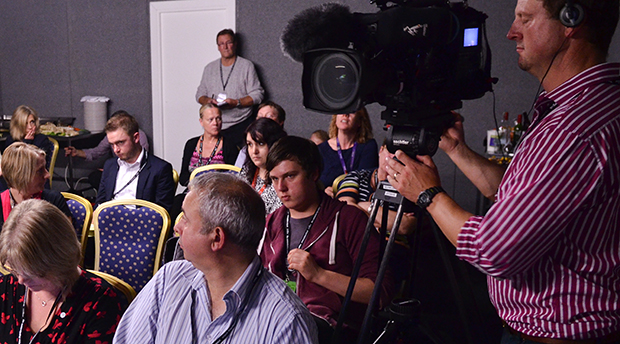Wider agreement between the Government, employers, learners and learning providers is needed to ensure apprenticeships set people up for long and fulfilling careers, explains David Hughes from the Labour Party Conference.
We all know apprentices are a good thing, don’t we?
Sitting on the panel at the FE Week fringe event last night on the future of apprentices was an interesting experience.
The panel included two Labour shadow ministers, as well as the Coalition’s Skills Minister, beamed in via Skype.
In many ways, you could hardly hold a cigarette paper between any of them, or any of the other panellists, in terms of what they thought about the apprenticeship programme.
The consensus that apprentices are a good thing flows through into policies, which are very similar.
The hope is there may be some much-needed stability over the coming years. Another area of all-round agreement between the panellists was the need to end the myriad of changes to the apprenticeships (and skills) programme, which have rained down from above over the past decade or more.
The Labour Party Skills Task Force published its report on apprenticeships yesterday: A revolution in apprenticeships: A something for something deal with employers.
Among many ideas for policy, a few stand out.
The headline will probably be the move to a new gold standard, with level two apprenticeships being replaced by a new and improved traineeship.
This means the term apprentice will only apply at level three and above.

I support this, with a number of caveats. Within this change, we must ensure we do not disenfranchise learners at level two.
Changing the definition of apprentice to level three and above is not enough.
What is needed is a wider definition, which describes the quality of the experience and the outcomes better.
That definition needs to be negotiated with and agreed by the apprentices themselves, along with employee and learner representatives including the unions.
Of utmost importance is that apprenticeships are open to everyone.
They should be for anyone, regardless of their age or occupation.
It is also essential we see more employers taking on apprentices from a black or minority ethnic background, or who have a learning difficulty or disability.

We are hoping the new Equality and Diversity Innovation Fund will help address this balance.
An apprenticeship should be about acquiring the transferable skills needed, not simply for a job, but for a lasting and fulfilling career.
What I would also like to see is a definition of quality which describes the learning experience.
This would include the breadth of exposure the apprentices have to the company they are working for, the support and mentoring they will receive, the relevance of the qualification and the number of hours of off-the-job training and on-the-job training.
Also, the progression opportunities at the end of the apprenticeship and the chances of getting a permanent job at the end.
More than anything, I would like to see a quality charter or guarantee that apprentices will always be supported for their career, not just the job they are in today.
This Quality Charter has to be developed with apprentices and written from their perspective, but must be agreed by the kind of social partnership we sorely lack in England.
A new social partnership, between the Government, employers, learners and providers will ensure a long-term vision for the apprenticeship programme.
The Husband Report hints at this social partnership and acknowledges the need for a stronger apprenticeship voice, but it isn’t bold enough.
The tension between what the apprentice wants and what the employer wants in the short-term must be exposed.
Good employers want staff who can carry on developing and good employees want to progress and earn more.
That is a virtuous circle of wants which we should focus more on.
The consensus on the value of apprentices can be a good thing if we are bold in our partnership approach.
I think we are nearly there, but one big collective push is needed.
David Hughes, chief executive of the National Institute for Adult Continuing Education and interim chair of the Education and Training Foundation









Your thoughts